Art has always had a commerce problem.
Even the purest artists want to share their art. The purer and better their art the more they honestly want to see it shared.
Even the purest artists in history needed some money to put food on their plates or a roof over their head to survive and keep making art.
I really like Keith Haring.
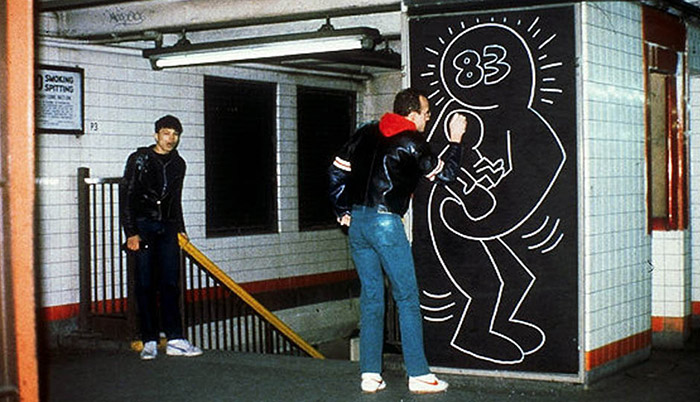
I don’t know how much money Haring died with or how much he made. I just know that he didn’t follow any economic principals to maximize his earning.
He just wanted his art everywhere. Subways, grocery bags, postcards, posters, sidewalks, school murals, T-shirts.
His art was comically simple, almost all of it had the same simple images and are were mostly about love.
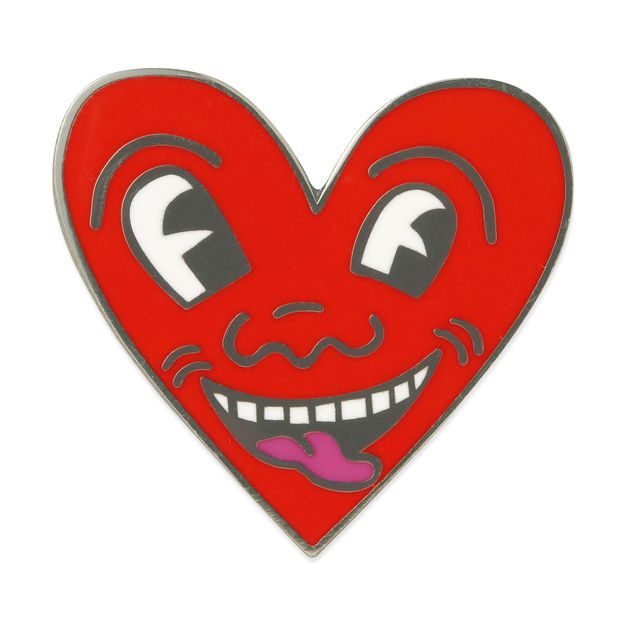
Some of the purest artists were African American sharecroppers with guitars. Their art wasn’t preserved or shared with many.
A guy named Alan Lomax went around and recorded a bunch of this stuff for the Library of Commerce, which was heroic. It spread that art for free, gave a lot of those people appreciation or some money, it eventually got polluted in some sort by money for good or for bad.
In 2000, writing for free led me to getting paid $400 an article about almost anything I wanted to write about music for the odd and simply named URL www.com. The internet was that crazy then. Everyone knew it would be monetized hugely, but no one knew how it would happen, or who would wind up with all of the money.
Napster had just emerged.
Take this song.
I probably paid $15 to just buy that song and it was hard to even do that, but it was worth it. It’s my favorite love song of all time.
I spent even more money to buy bootlegs to get songs that I hadn’t even heard just to hear them. Just one song. A lot of them were not worth even 10 cents.
Suddenly, Napster was there, and I could get all of those songs for free in seconds.
It was very controversial.
Lars Ulrich of Metallica, who already had plenty of money was enraged, he had made his music for various reasons and didn’t want his hard work stolen. He was mostly right.
Chuck D of Public Enemy had bigger and loftier goals.
His view was that artists had always been slaves to those who distributed their content and that in some ways giving it away for free gave them a lot of power, future direction and ownership.
The one thing I wrote that I couldn’t get paid for at the time was my hope that somehow everything would be available somewhere for some type of fair price. Perhaps, if I wanted to listen to one song that I had never heard that I could spend a penny to hear it every time I wanted to hear it or then purchase it for some price and then hear it as often as I wanted.
WWW.com wouldn’t pay me a dime to publish that because the only reason they were paying me $400 for everything else was that they had their own plan to monetize music over the internet and my idea wasn’t it.
This sort of happened when iTunes came around, but it wasn’t comprehensive, and even if you thought you had bought a song you really didn’t own it.
It looked like every single song was $0.99 cents, but there were some songs you could not purchase at all without buying really expensive albums. Some songs that were less than six seconds still cost $0.99.
In a lot of ways that led to both good and bad things. It freed Aimee Mann and let her make a living doing things by herself, after years of being messed with by record companies.
A lot of artists then made art and the only way you could get it was by paying them. It was usually very cheap and they made most of the money. That was awesome.
Movies are expensive to make and much more complicated. Production, distribution, preservation, availability.
When I was growing up most old movies or television shows I only got to see if I was lucky enough to randomly see them on television in various forms of quality.
The movie “It’s a Wonderful Life” was on television all of the time.
It wasn’t on television because it was good.
It was on television because it was such a huge flop that the people who owned its rights didn’t care enough to keep its rights. That led to anybody getting to release it in whatever good or shitty quality they felt like. It was the reason it was on television all the time. It didn’t really cost those stations a penny to air it.
That led to everyone loving the film. Someone did eventually reacquire its rights.
It’s now on television usually in one place only at a certain time of the year (Christmas), in fairly good quality.
Look at the example of this film, which to me is the only good film ever made about Jackie Robinson.
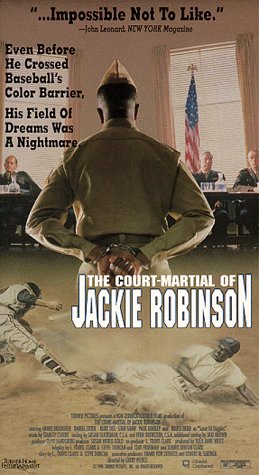
I’d like to see it again. I’d be willing to pay at least $10 to just see it again once. I can’t.
I can’t steal it right now. I can’t really buy it anywhere. No matter how much I am willing to pay even if I’m willing to watch it in its worst form, I can’t do so.
The whole thing led me to pledge that I would steal, but I would do my best to pay small artists I liked by buying almost everything reasonable they offered from them in the place that paid them the most.
Doug Stanhope encourages his fans to steal his stuff. I, once probably too proudly and self-servingly, told him why I paid for all his stuff, he hilariously called me an idiot. Now I buy all of his stuff even more proudly.
So I steal all of the time. Sometimes, I steal just merely to not watch commercials. Doing this has led to viruses that have cost me hard drives and programs that I did purchase.
My dad has always stolen movies. I think he enjoys stealing movies more than watching them. He won’t even admit that he’s stealing them. He thinks that all of these movies are just available to him via technology that he has access and his ability to use it even though every one of those movies begins with an FBI warning defining stealing.
It is stealing. I don’t care if you steal.
Sometimes the only way to hear or see something is to steal it, but at least be man enough to admit that you are stealing.
I paid tons of money to record companies, in particular, to buy music in various forms. Sometimes I would buy cassettes, then buy vinyl, then buy the same stuff on CD, and then have to buy it on Mp3. All of it in various types of quality, a lot of times ignorantly with almost no idea about what kind of quality I owned.
That was all kinds of wrong and inefficient, but at least in doing so, I sort of leaned music in some kind of context by paying for it.
I bought this cheaply made album cheaply and listened to it maybe 1000 times.
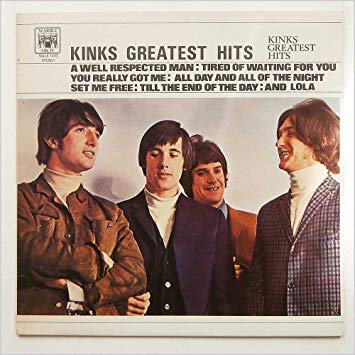
That album is fairly decent. It’s one big problem is that it’s biggest hit “Lola” doesn’t belong on it. The rest of the music comes from a very specific time period. “Lola” came out many years later and was cynically tossed onto it deceptively. This didn’t stop me from purchasing and buying everything in between.
It took me a lot of books to understand how to do that well.
I recently came in contact with a decent guy younger than me who seems to have a ton of websites. I don’t know if he makes any money from them or how much.
One of his websites concerns all the music he owns.
He somehow got 1.5 million songs of every type for free. He listens to them randomly and when he likes something he posts it on a website.
I’ve learned that songs you listen to once and love, you may hate forever after four listens.
It took me listening and not getting John Coltrane’s Giant Steps ten times to even begin to understand it much less love it.
The only reason I did so was because a book told me to listen to it and to do that. Now I love Giant Steps.
I don’t care what music anyone loves or hates, but I do hate when people judge it or its artists ignorantly without context.
Even the worst most craven musicians spent a lot of time and effort leaning to do whatever it is they did.
Some of them provided great gifts and great life messages.
My favorite was Joe Strummer. Over and over Joe Strummer and his band, the Clash, released way too much music and sort of quixotically kept making sure that it would put them more and more in debt.
Perhaps the only time Joe Strummer made any money was because of this video.
MTV played it a billion times and it became a big hit.
That video had gigantic ambition behind it.
It attempted to use music and humor to end just about everything bad everywhere with music, humor, and love.
It’s about middle east dictators or kings in any form banning music, suppressing it, and hopefully failing at all the bad things they do because the music is too good. It’s about them ordering violence and failing because the people who they order to kill did not do so because they were too busy listening to music or perhaps because the music told them not to.
In its funniest and simplest form, it shows a Jew and someone you would think hates Jews getting along because they both wanted to go to a Clash concert together.
What did that lead to?
- The Clash finally made a little money, but it hardly mattered because they owed so much through their previous generous actions
- Almost no one got the humor or the message
- Idiots accused them of selling out
- It led to the end of the Clash
- When George W Bush decided to kill people in Iraq, the military did so by playing it first and choosing it as their theme song. Bombs were dropped that had “Rock the Casbah” written on them.
- Joe Strummer wept
He wept because the only thing he wanted people to know about him and his band was this.
I think people ought to know that we’re anti-fascist, anti-violence and anti-racist. We’re against ignorance. – Joe Strummer
Do I want you to love Joe Strummer and the Clash? Yes.
Do whatever it is that you want to do for whatever your own ends now are. That is what you are going to do anyway.
Who wound up with most of that internet money that was in play back in 2000?
Jeff Bezos and Amazon who were mostly selling books. Now they sell books, movies, and just about everything else.
They put tons of people out of business both good and bad. They killed brick and mortar places I loved to hang out at, and they killed stores and companies that ripped me off.
I’ve learned that few people read books. There are plenty of books both good and bad. Books go out of print.
If I suggest that someone like the Clash and tell them I can help them approach that huge subject in the right way, I’ve learned that mostly what will happen is the following.
- They want to learn and discover things on their own
- If they attempt to approach the Clash they will watch the first thing on YouTube that catches their eye that they may or may not like or get.
- If they like it they may go further or not
- Usually, they go no further and if they say they like the Clash will say the best thing to like is the thing they first found.
- A lot of times the first thing you find can be an implement to liking or understanding the Clash in full context
Many times I will just say I like the Clash somewhere on the internet.
Some, usually younger, person via their 1.5 million random song song collection will not like the Clash and glibly put them down ignorantly with a two sentence glib reply attempting to be definitive.
I will respond with context and knowledge and ask them honestly to at least attempt to not be so ignorant.
They will take ignorant as an insult; go to Google and type in “Worst Clash song ever released,” or “Worst thing Joe Strummer ever did in his life,” and see a bunch of crap usually first a really crappy not very accurate Wikipedia entry for Joe Strummer.
Joe Strummer lived a very good life on the whole.
There were times that he was just drunk and punched guys, which was a violation of his principles. That happened maybe one of of 1000 times.
So back will come a glib reply informing me of the worst thing Joe Strummer ever may or may not have done via less than a minute of research. All to just be glib and look like the winner.
That makes me weep.
I’m glad I paid all of those motherfuckers all the money I did for the music I did presented in context or not and for all of the books good or bad that I read.
I’m glad for the first bad book that made me read another great book. I’m really glad it was the “Autobiography of Malcolm X,” which good or bad told me to read every book I could good or bad.
Art shouldn’t be a contest. Don’t treat it like one. People who do treat it that way can still provide you with valuable knowledge.
Never stop learning, but learn constructively and open mindedly until you have almost every reason to shut it defiantly about that subject.
Still keep your mind a bit open, because you never really know.
That was the true message and example of Malcolm X, Joe Strummer, and John Lennon, and its why I love them so.
They were often wrong and admitted they were wrong. They went on with new evolved complex messages.
You can learn about them well. It takes context and is hard.
Right now they are all dead. I can’t embrace a stranger and go to a Clash show and make him my friend. Both Joe Strummer and the Clash are dead.
That makes me weep. It all makes me weep.

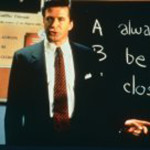




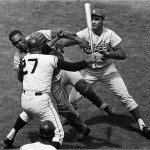
I will give that a read and thanks Brad!
Actually DB, you may have just missed this which is even longer and more rambling in tribute to Joe but was just added. Please honor me by checking it out even though you already know everything it says already!
https://bradlaidman.com/my-100-essential-albums-part-3-the-sandinista-of-joe-strummer-salvos/
Thanks again for the great addition DB – Joe wanted you to steal it and I think John did too, and you were clever enough to comment on a different post to not let the man know. You are awesome, Brad
Bob Dylan: Great paintings shouldn’t be in museums. Museums are cemeteries. Paintings should be on the walls of restaurants, in dime stores, in gas stations, in men’s rooms … Music is the only thing that’s in tune with what’s happening. It’s not in book form, it’s not on the stage … It’s not the bomb that has to go, man, it’s the museums.
Hey Brad-great ramble. Though I will not claim to have got all of Joe’s messages, I loved the Clash and Joe’s music. Sadly, I did not pick up with Joe again until the Mescaleros. But thanks to your post above, I did take a moment to look back on his tremendous achievements in his tragically short life and will go hunting for everything I missed and steal it! So, thank you for that.
To my credit, there was life after the Clash and I followed Mick Jones in B.A.D. (one album included Joe Stummer; thankfully they remained friends if not band mates)–also Mick in Gorillaz and his many other contributions to the world of Music.
Beyond that, I feed my inner 70’s and 80’s children with a regular diet of real punk rock and Johnny Cash AND no Greenday)!
“For me, the best rock is not what you play – it’s what you’re not playing.” ~ John Lydon